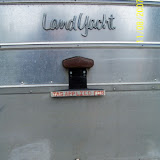I read the Make Poverty History manifesto this morning. I should be thinking about how to get the Airstream ready for the family camping trip coming up in a couple of weeks, but I'm puzzling over this statement.
I don't know what our pastors are proposing, if it is not more confrontation of the powers with regard to poverty, while also finding the "appropriate" path out of poverty for our particular community.
What are my gifts and dreams? What power and influence can I leverage in my social location as a relatively wealthy and intelligent agent of change? What do those formerly known as poor have to leverage in their social location?
What do I make of Jesus' identification of the poor as blessed; of the poor as the least? What do I make of the Jesus of the Gospels, when he confronts the rich and warns them that their wealth is dangerous? Is Jesus using the poor as a prop for his political message of overturning powers? Isn't this where a lot of the guilt I have comes from, anyway? Woe to the rich, blessing to the poor? Don't we need the poor around to remind "us" of our spiritual poverty? This is cynical, I know, and I don't believe it, but something about this logic is troubling to me.
While we are changing our thinking about who the poor really are, what do we do about the rich? Where does this conversation about gifts and dreams go for the ones who are more economically comfortable? Complacency is a dangerous thing, isn't it?
Liberation theology teaches that God has a preferential option for the poor. It's easy to recognize this preference. Liberation theology teaches that the rich need to beware, that poor far outnumber the rich, and once they figure out how to organize and gain a voice, they will overpower the rich and set the accounts right and balance the economy -- by force if necessary. Liberation theology says a lot more than this, but for my thinking this morning, that's as far as I am going.
I suppose the balance of another kind is coming into focus for me today. The thinking change about what's upstream and what's downstream is percolating in my little brain today. This has to be about more than semantics and psychological reframing. Language games and mind games will get us/me nowhere.
By the way, upstream thinking comes from my time spent with the UCC. Their entire social justice process begins with thinking upstream. I found an article (p. 3-4 Scott Anderson, Exec. Dir., Wisconsin Council of Churches) that explains pretty well the approach.
Subscribe to:
Post Comments (Atom)


Dear Anne,
ReplyDeleteI love upstream thinking. That's part of where I'm coming from in all of this stuff. I'm tired of helping pay people's utility bills and then watching while four houses burn to the ground in three and a half years within shouting distance of our church - and 9 women die in those fires -- 8 of them under 16 years old. Paying utility bills doesn't seem like good news to the poor. It may be okay news. But it doesn't sound all that good. And it doesn't sound like I believe in much more than the power of the dollar -- not in the power of what we can potentially build and build upon in the gifts and abundance that the world can't see around us. The biggest thing I'm challenged by in what you say -- is how to say this in ways that are understandable. But as I said in the other posting -- I sure don't have a lot of answers about that either. I think one of the reasons to DO the whole series in the first place is to grapple with this some more!